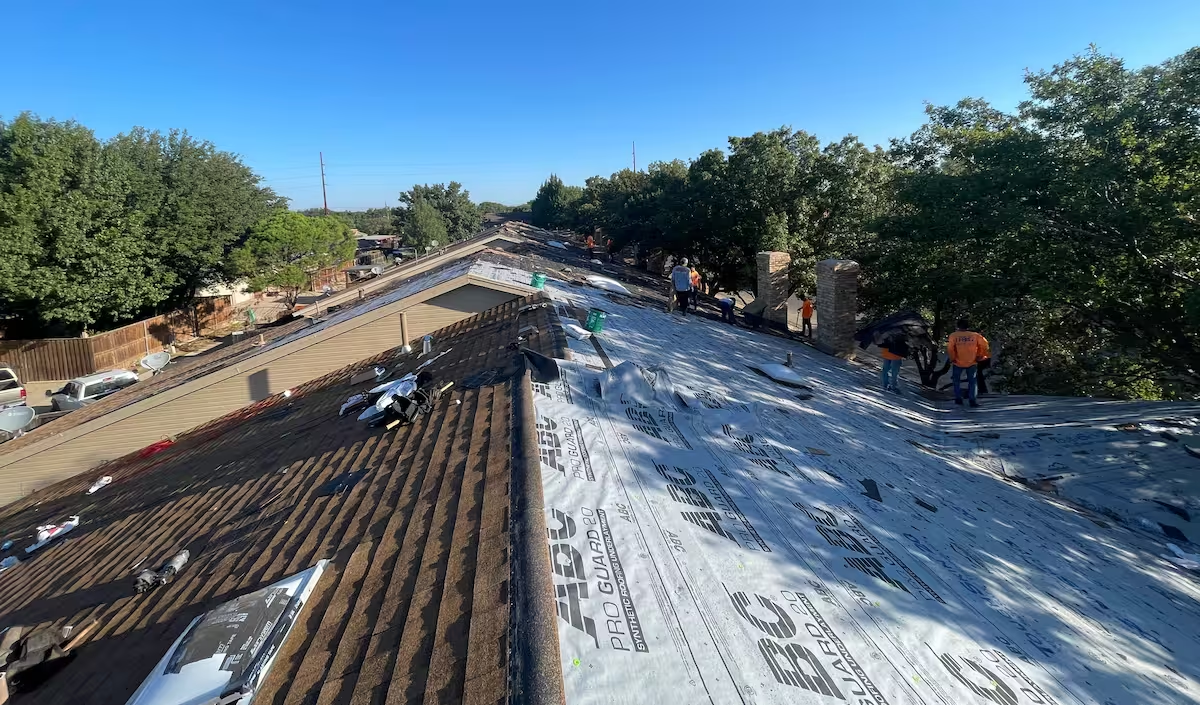Understanding Roof Replacement Costs
Roof replacement represents one of the most significant home improvement investments, with costs varying dramatically based on materials, home size, complexity, and regional factors. A typical roof replacement ranges from $8,000 to $25,000 for most homes, though premium materials and complex installations can increase costs substantially.
Understanding the various factors that influence roofing costs helps homeowners budget effectively and make informed decisions about materials, contractors, and project timing. Professional estimates should always account for materials, labor, permits, disposal, and potential structural repairs.
Material Cost Breakdown
Asphalt Shingles
Asphalt shingles remain the most popular roofing choice due to their affordability and versatility. Basic three-tab shingles cost $3-5 per square foot installed, while architectural shingles range from $4-7 per square foot. Premium designer shingles can reach $8-12 per square foot for high-end options.
- Three-tab shingles: $3-5 per square foot installed
- Architectural shingles: $4-7 per square foot installed
- Designer/premium shingles: $8-12 per square foot installed
- Impact-resistant shingles: $5-9 per square foot installed
Metal Roofing Systems
Metal roofing offers exceptional durability and energy efficiency but requires higher upfront investment. Steel panel roofing costs $6-12 per square foot installed, while premium materials like copper can exceed $15-20 per square foot.
- Steel panel roofing: $6-12 per square foot installed
- Aluminum roofing: $8-14 per square foot installed
- Standing seam metal: $10-16 per square foot installed
- Copper roofing: $15-20+ per square foot installed
Tile and Slate Options
Natural materials like clay tile and slate provide exceptional longevity but command premium prices due to material costs and specialized installation requirements.
Labor and Installation Costs
Labor typically represents 40-60% of total roof replacement costs, varying by region, contractor experience, and project complexity. Most contractors charge $2-4 per square foot for standard installation labor, with complex roofs requiring additional time and expertise.
Factors Affecting Labor Costs
- Roof pitch and accessibility - steeper roofs require specialized safety equipment
- Geographic location and local labor rates
- Seasonal demand and contractor availability
- Complexity of roof design with multiple angles, dormers, or skylights
Additional Cost Factors
Structural Repairs
Roof replacement often reveals underlying structural issues that require attention before new materials can be installed. Structural repairs can add $1,000-5,000 or more depending on the extent of damage to decking, rafters, or support structures.
Permits and Inspections
Most municipalities require permits for roof replacement, with costs ranging from $100-500 depending on local regulations and home value. Professional contractors typically handle permit applications and coordinate required inspections.
Disposal and Cleanup
Removing existing roofing materials generates significant waste that must be properly disposed of. Disposal costs typically range from $300-800 depending on roof size and local dump fees.
"Investing in quality materials and professional installation provides better long-term value than choosing the lowest bid. A well-installed roof protects your home for decades while poor installation can lead to premature failures and costly repairs."
Size and Complexity Impact
Roof Size Calculations
Roofing costs are calculated per "square" (100 square feet of roof area). Most homes require 15-30 squares of material, though exact measurements depend on roof pitch, overhangs, and architectural features.
Complexity Factors
Simple gable roofs cost less to replace than complex designs with multiple levels, valleys, dormers, and penetrations. Each additional feature increases labor time and material requirements, affecting overall project costs.
- Multiple roof levels and elevation changes
- Dormers, skylights, and chimney integration
- Valley systems and complex flashing requirements
- Steep pitches requiring specialized safety measures
Regional Cost Variations
Roofing costs vary significantly by geographic region due to labor rates, material availability, local building codes, and weather conditions. Urban areas typically have higher costs than rural regions, while areas prone to severe weather may require upgraded materials and installation techniques.
Regional Considerations
- Local labor market conditions and contractor availability
- Building code requirements for wind resistance or snow loads
- Material transportation costs and regional supplier networks
- Seasonal weather patterns affecting installation schedules
Financing and Budget Planning
Payment Options
Most roofing contractors offer various payment structures to accommodate different financial situations. Understanding payment options helps homeowners plan their investment and choose appropriate financing solutions.
Insurance Considerations
Homeowner's insurance may cover roof replacement costs when damage results from covered perils like storms, hail, or wind. Insurance claims can significantly reduce out-of-pocket expenses, though deductibles and coverage limits apply.
Getting Accurate Estimates
Professional Assessments
Accurate cost estimates require on-site evaluations by qualified roofing contractors who can assess specific conditions, measure roof areas, and identify potential complications. Quality contractors provide detailed written estimates breaking down all costs.
Comparing Contractor Bids
Obtaining multiple estimates helps homeowners understand fair market pricing and identify contractors offering the best value. Compare not just total costs but also material specifications, warranty coverage, and contractor credentials.
- Request at least three detailed written estimates
- Verify contractor licensing, insurance, and local references
- Compare material quality specifications and warranty terms
- Evaluate contractor experience with your specific roofing material
Value-Added Considerations
Energy Efficiency Upgrades
Roof replacement provides an opportunity to improve home energy efficiency through upgraded insulation, ventilation, and reflective materials. Energy-efficient upgrades may qualify for tax credits and utility rebates that offset additional costs.
Property Value Impact
A new roof typically increases property value by 60-70% of the project cost while improving curb appeal and marketability. Quality roofing investments provide both immediate protection and long-term financial benefits.
Timing and Seasonal Factors
Roof replacement timing affects both costs and contractor availability. Spring and fall represent peak seasons with higher demand and prices, while winter installations may offer cost savings but face weather-related delays.
Optimal Timing Strategies
- Schedule non-emergency replacements during off-peak seasons
- Plan ahead to avoid premium pricing during storm seasons
- Consider weather patterns and contractor schedules in your area
- Balance cost savings with installation quality and warranty coverage
Conclusion
Roof replacement costs depend on numerous factors including materials, labor, home size, complexity, and regional variations. While the investment is substantial, typically ranging from $8,000-25,000 for most homes, a quality roof provides decades of protection and increases property value. Understanding cost factors helps homeowners make informed decisions about materials, contractors, and project timing. Always prioritize quality installation over lowest price, as proper workmanship ensures optimal performance and longevity. Obtain multiple detailed estimates, verify contractor credentials, and consider long-term value when making your roofing investment decision.




